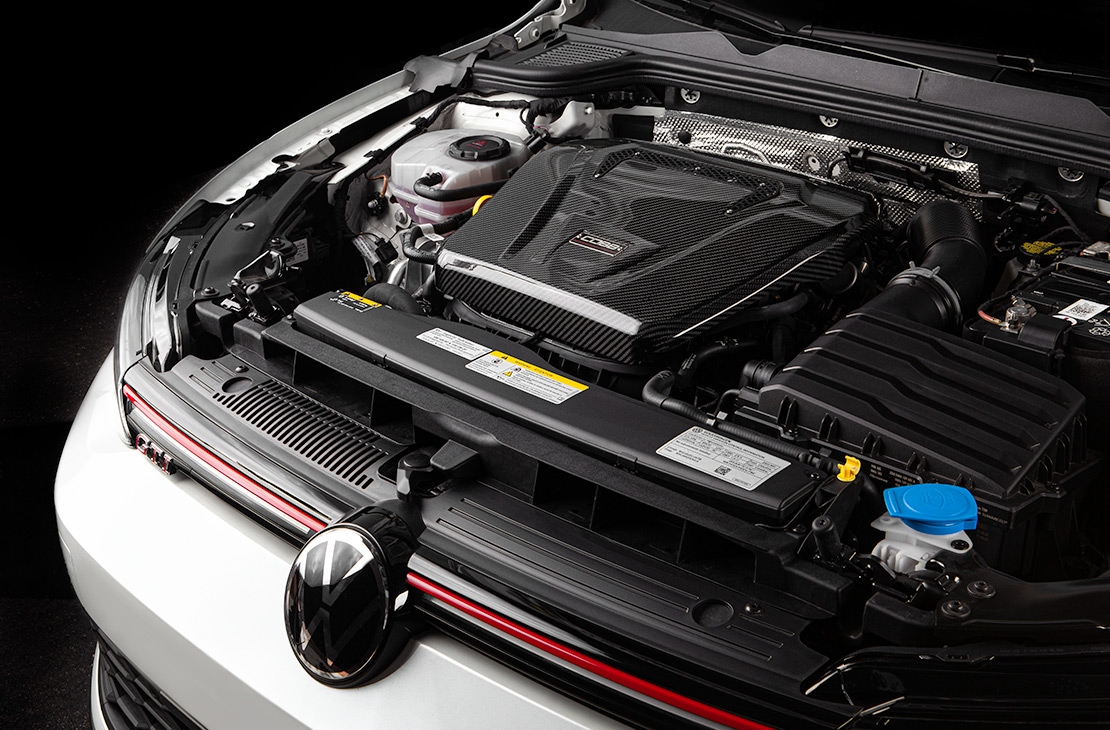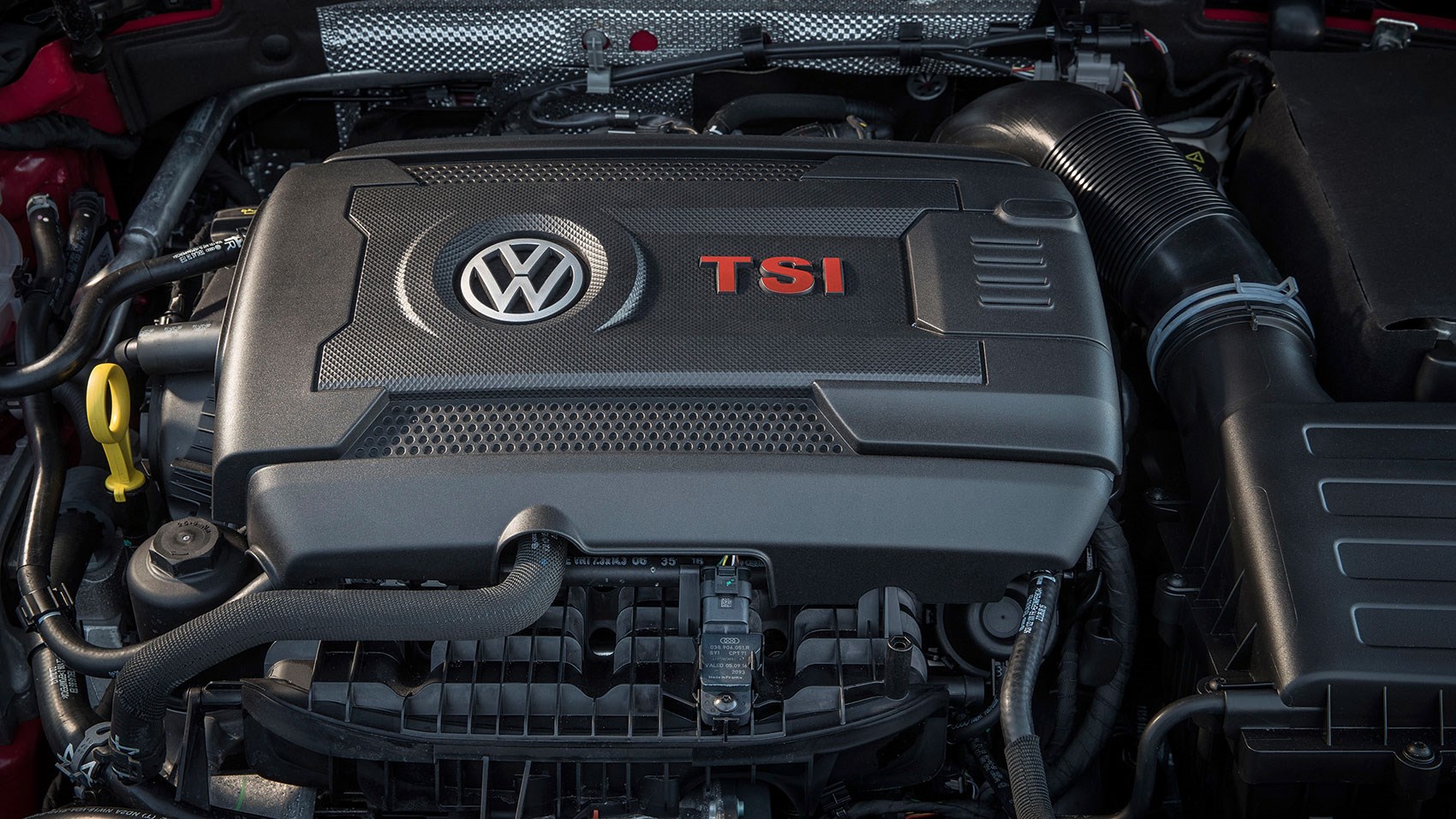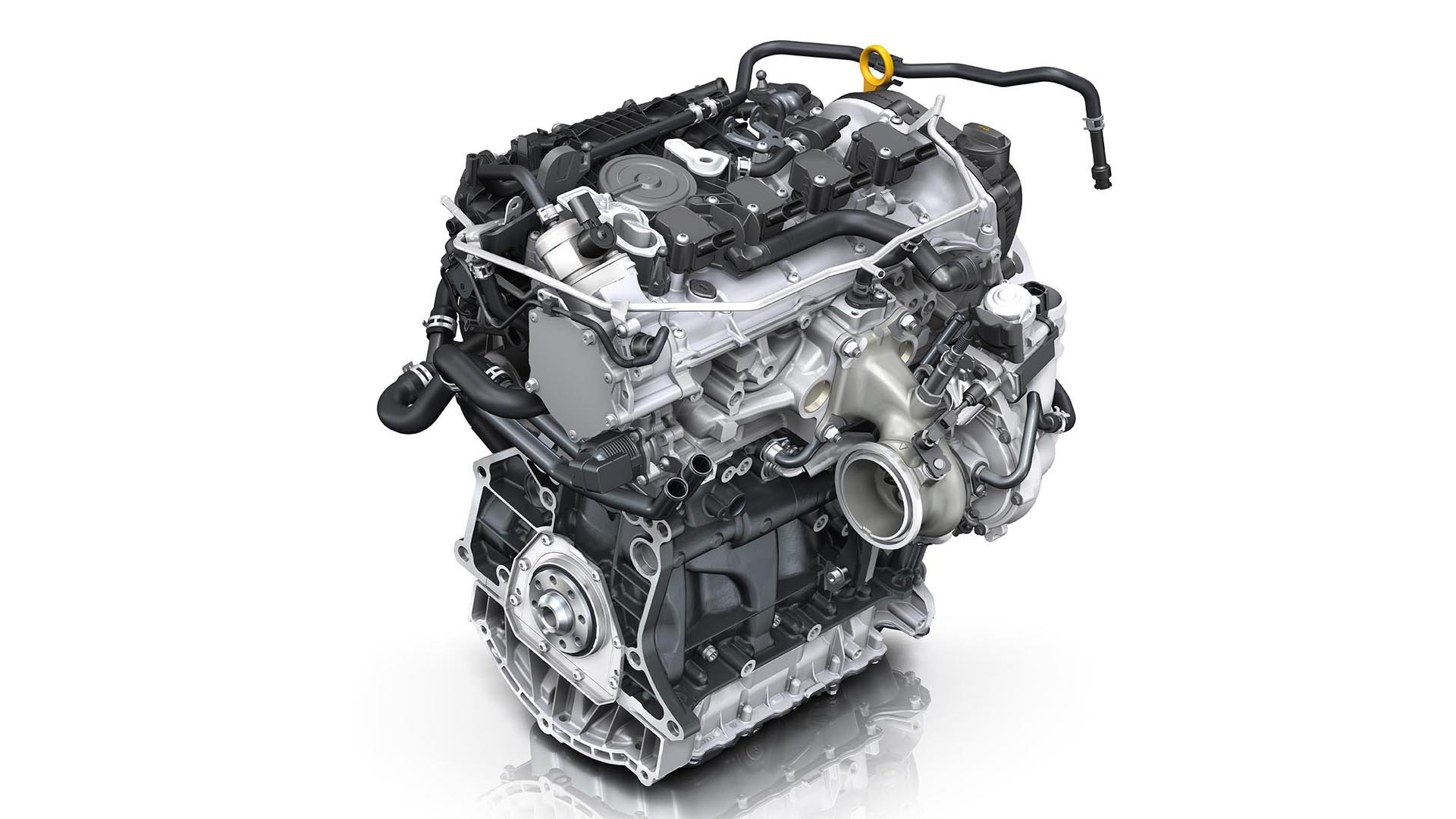Understanding the Golf 7 GTI Engine: Key Specifications and What They Mean for You
Understanding the Golf 7 GTI Engine: Key Specifications and What They Mean for You
Blog Article
Your Guide to the Golf 7 GTI Engine: Dependability and Upgrades
The Golf 7 GTI, geared up with its 2.0-liter turbocharged inline-four engine, represents an equilibrium of efficiency and reliability that attract enthusiasts and everyday motorists alike. Understanding the elements that add to its stability, alongside potential issues and their services, is vital for maximizing the driving experience. Furthermore, checking out different efficiency upgrades can substantially improve both power and performance. Nevertheless, the concern stays: what particular upgrades can transform your GTI into a truly remarkable car while ensuring its longevity?
Review of the Golf 7 GTI Engine
The heart of the Golf 7 GTI is its 2.0-liter TSI engine, a turbocharged four-cylinder that provides an excellent blend of power and performance. This engine creates a robust 220 horse power and 258 lb-ft of torque, allowing the lorry to speed up from 0 to 60 mph in simply 5.6 seconds, showcasing its flashy character. The turbocharged design not just enhances efficiency but additionally enhances gas effectiveness, making it a practical option for daily driving.
Integrating advanced modern technology, the engine features straight fuel injection, which boosts combustion performance and decreases exhausts. Furthermore, the Golf 7 GTI is outfitted with either a six-speed manual or a six-speed DSG dual-clutch transmission, providing motorists with the flexibility to select their favored driving style. The vehicle's front-wheel-drive design, combined with a well-tuned suspension, makes sure dexterous handling and a responsive driving experience.
Engine Integrity Factors
Dependability is a critical aspect of any type of performance-oriented lorry, and the Golf 7 GTI's engine is no exception. A number of variables add to the overall dependability of this very regarded powerplant, which is vital for both day-to-day driving and perky performance.
Firstly, the Golf 7 GTI is geared up with a robust 2.0-liter turbocharged inline-four engine, known for its efficient style and solid engineering. This engine features a forged steel crankshaft and aluminum engine block, which offer exceptional stamina and longevity while lowering weight.
Second of all, normal upkeep plays a crucial function in improving engine dependability. Adhering to the producer's suggested service periods, making use of high-grade lubricating substances, and changing necessary elements such as spark plugs and filters can significantly expand engine life.
Moreover, the high quality of fuel used can additionally affect dependability. Premium gas is suggested to guarantee optimal efficiency and lessen the risk of knocking or detonation.
Last but not least, the automobile's electronic monitoring system constantly keeps track of engine parameters, permitting for real-time modifications to optimize efficiency and efficiency while guarding versus potential concerns. Collectively, these factors emphasize the Golf 7 GTI engine's track record for reliability amongst enthusiasts and day-to-day chauffeurs alike.
Common Problems and Solutions
The Golf 7 GTI, while celebrated for its efficiency, is not without its challenges. Among one of the most often reported concerns are engine oil usage and turbocharger failings, which can considerably influence car integrity. Understanding these usual problems and their options is essential for preserving optimal engine performance.

Engine Oil Consumption
While several lovers value the performance of the Golf 7 GTI, engine oil intake can emerge as a notable worry. Owners may see that their cars call for more constant oil top-ups than expected, commonly credited to different factors intrinsic in the engine's layout and operation.
One usual issue is the engine's direct gas shot system, which can result in raised oil consumption because of the burning process. Furthermore, making use of high-performance driving habits can intensify oil burn-off, specifically under aggressive throttle conditions. Motorists might also experience oil leaks from gaskets and seals, which can add to decreased oil levels.
Regular oil modifications utilizing premium synthetic oil can help keep optimum engine performance and longevity. If excessive intake lingers, it may be advisable to consult a specialist specialist to evaluate the engine for potential inner issues, such as worn piston rings or shutoff seals.
Turbocharger Failings
Turbocharger failures can significantly influence the performance of the Golf 7 GTI, leading to lessened power and effectiveness. Common concerns connected with the turbocharger include oil leakages, wastegate failure, and too much shaft play. Oil leaks often come from worn seals or harmed gaskets, which can result in oil contamination and succeeding engine damage. Regularly evaluating these components can aid determine and minimize such problems early.
One more widespread problem is wastegate failure, which can lead to overboost or underboost problems. If left unchecked, this not only influences the vehicle's performance yet can also lead to major engine damages. Updating to a more robust wastegate can improve integrity and performance.
Excessive shaft play suggests wear in the turbocharger's bearings, which can cause a complete turbo failure. Keeping an eye on increase stress and paying attention for unusual noises can assist find this trouble early.
To avoid turbocharger failures, routine upkeep, consisting of oil adjustments and air filter replacements, is essential. Furthermore, spending in high-grade aftermarket parts may provide improved reliability and performance, eventually improving the driving experience of the Golf 7 GTI.
Performance Upgrades to Think About
What performance upgrades can genuinely raise the driving experience of a Golf 7 GTI? To release the complete capacity of this famous warm hatch, several targeted modifications can boost power, handling, and overall driving enjoyment.
Among one of the most Read Full Report reliable upgrades is a high-performance turbocharger. Changing the supply system with an aftermarket choice can considerably enhance horsepower and torque, delivering an extra electrifying velocity experience. Matching this upgrade with a performance intercooler helps maintain optimum temperature levels, making sure constant power delivery.
Following, take into consideration updating the exhaust system. A less limiting exhaust not just improves engine efficiency yet additionally creates a more hostile noise that enhances the vehicle's sporty personality. Matching this with a remapped ECU will maximize fuel distribution and ignition timing, more increasing efficiency.
Suspension upgrades, such as flexible coilovers, can improve dealing with by lowering the vehicle's center of mass and minimizing body roll. Additionally, a collection of high-performance tires will enhance hold, enabling sharper cornering and boosted overall security.
Together, these upgrades can change the Golf 7 GTI into an extra exhilarating and vibrant driving device, making every trip an extraordinary experience. golf 7 gti engine.
Recommended Upkeep Practices
Maintaining the Golf 7 GTI engine needs focus to essential techniques that guarantee optimum performance and durability. Normal oil changes are crucial for engine health and wellness, while prompt timing belt replacement is vital to avoid prospective failings. Implementing these maintenance techniques will certainly help keep your lorry running smoothly and effectively.
Normal Oil Adjustments
Regular oil modifications are crucial for the optimal performance and durability of the Golf 7 GTI's engine. Keeping a regular oil change routine makes sure that the engine runs efficiently and efficiently. The recommended interval for oil modifications is normally every 5,000 to 10,000 kilometers, relying on driving conditions and the type of oil used.
Utilizing top notch artificial oil is critical as it provides exceptional lubrication and thermal stability compared to conventional oils. This is particularly essential for the Golf 7 GTI, which features a turbocharged engine that produces higher operating temperatures. Routine oil modifications assist to eliminate pollutants and sludge accumulation, which can jeopardize engine performance and result in premature wear.
Moreover, fresh oil enhances gas performance and lowers unsafe this content exhausts, adding to a cleaner setting. During the oil modification process, it is also suggested to change the oil filter to make sure ideal filtering and avoid any particles from going into the engine. Adhering to these practices not just aids preserve the engine's integrity but additionally maintains the value of the vehicle, making normal oil transforms a crucial aspect of liable GTI possession.
Timing Belt Replacement
The timing belt is a critical element of the Golf 7 GTI's engine, in charge of synchronizing the turning of the crankshaft and camshaft. This synchronization is necessary for ideal engine efficiency and effectiveness. If the timing belt fails, it can bring about disastrous engine damage, making prompt replacement crucial.

When preparing a timing belt replacement, it is suggested to likewise change the water pump and tensioner. These elements work in combination with the timing belt and typically experience comparable wear, making sure optimal efficiency and longevity. Making use of OEM parts is advised for their reliability and compatibility with the Golf 7 GTI's engine.
Specialist installation is very encouraged, as inappropriate installation can cause serious engine breakdowns. Routine maintenance of the timing belt not only protects the integrity of the engine yet additionally enhances the total driving experience of the Golf 7 GTI. golf 7 gti engine. Prioritizing this task helps preserve lorry dependability and efficiency over time
Aftermarket Components and Alterations
Various fanatics transform to aftermarket alterations and parts to improve the efficiency and aesthetic appeals of the Golf 7 GTI. These upgrades can dramatically improve the automobile's responsiveness, taking care of, and overall driving experience. Popular adjustments consist of high-performance air consumptions, exhaust systems, and intercoolers, which can increase horsepower and torque by enhancing air consumption and exhaust circulation.
Suspension upgrades are additionally prevalent, with options ranging from reducing springtimes to totally flexible coilover kits that enhance trip high quality and cornering capacity. Updated brakes, consisting of efficiency pads and blades, can provide better stopping power, guaranteeing security and control throughout spirited driving.
Aesthetic adjustments, such as aftermarket wheels, body packages, and personalized lights, permit proprietors to individualize their vehicles while maintaining a sporty appearance. Engine adjusting, whether via ECU remapping or standalone engine monitoring systems, can open added efficiency capacity, making the GTI also a lot more thrilling to drive.
While aftermarket adjustments can produce considerable benefits, it's necessary to choose reliable brands and consider the possible effect on guarantee and dependability. Proper installation and adjusting are vital to make sure the durability of the car while enjoying the improvements.
Enhancing Gas Effectiveness
Improving fuel performance in the Golf 7 GTI can cause considerable cost financial savings and a decreased environmental influence. Accomplishing better gas economic climate requires a mix of driving practices, maintenance methods, and tactical alterations.
One efficient method is taking on a smooth driving style, staying clear of fast acceleration and hefty braking, which can substantially minimize fuel usage. Maintaining optimum tire pressure is additionally essential; under-inflated tires can raise rolling resistance, bring about reduced performance. Routine maintenance, including engine adjusting and air filter substitutes, makes sure that the engine runs at peak performance, better enhancing gas economic situation.
For those seeking upgrades, take into consideration a performance tune that concentrates on efficiency as opposed to sheer power. Eco-mode setups, if offered, can change throttle feedback and shift indicate maximize fuel financial savings. Additionally, lightweight aftermarket wheels can minimize weight and improve efficiency without jeopardizing efficiency.
Lastly, utilizing wind resistant improvements, such as a front splitter or back spoiler, can decrease drag at greater rates, adding to better fuel economic climate. By carrying try here out these strategies and modifications, Golf 7 GTI proprietors can appreciate enhanced fuel efficiency while preserving the automobile's perky driving attributes.
Verdict
In verdict, the Golf 7 GTI engine exhibits a blend of performance and integrity, driven by a well-engineered 2.0-liter turbocharged inline-four. Different performance upgrades and aftermarket modifications can boost driving experience while preserving reliability.
The Golf 7 GTI, equipped with its 2.0-liter turbocharged inline-four engine, stands for an equilibrium of performance and integrity that charms to enthusiasts and day-to-day motorists alike. Routine oil changes making use of top notch synthetic oil can aid preserve optimal engine efficiency and durability.Normal oil modifications are important for the optimum performance and longevity of the Golf 7 GTI's engine. Routine servicing, consisting of engine tuning and air filter substitutes, guarantees that the engine runs at peak performance, better improving gas economic climate.

Report this page